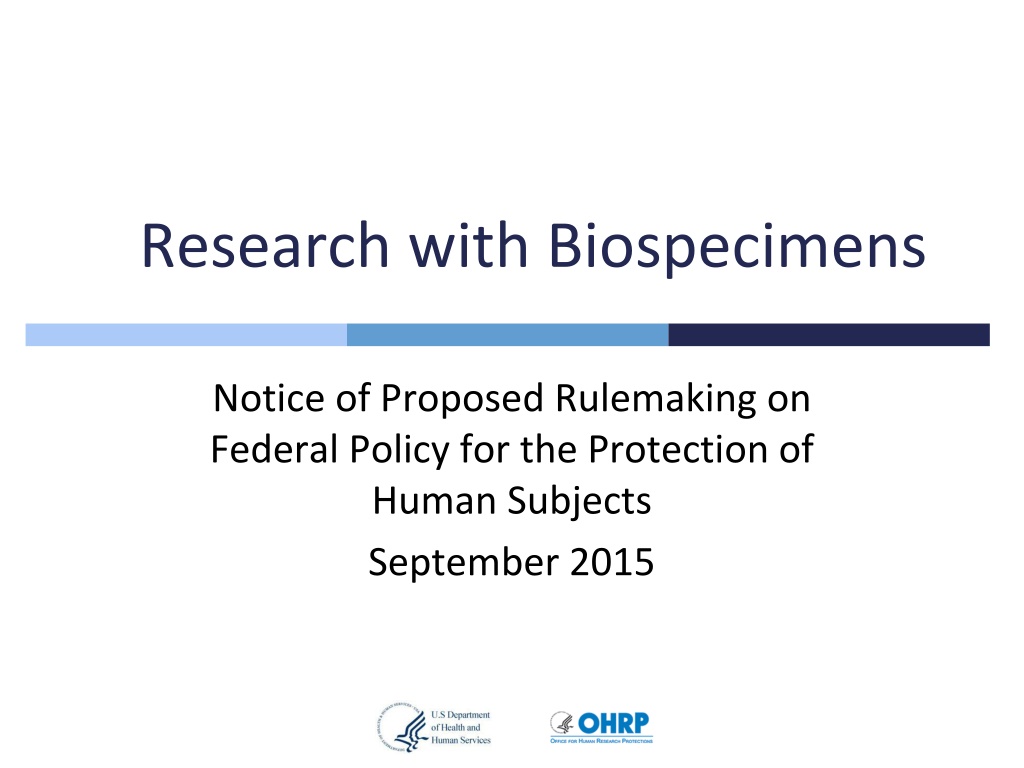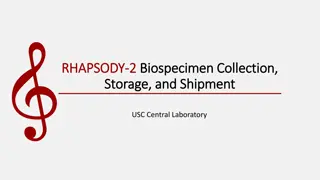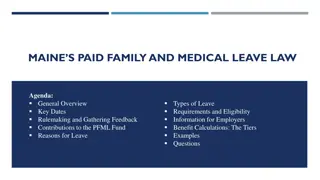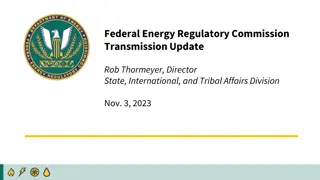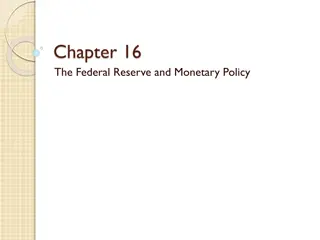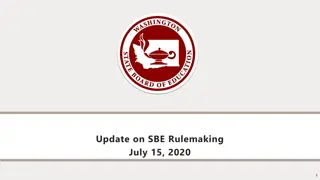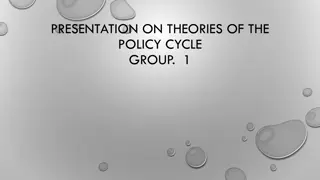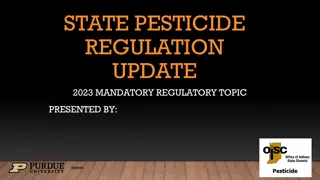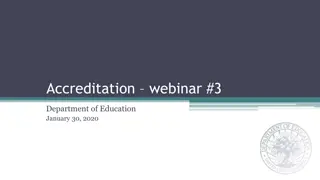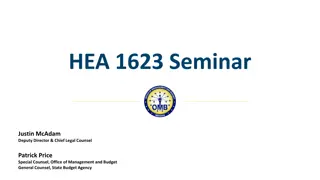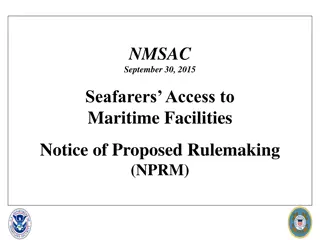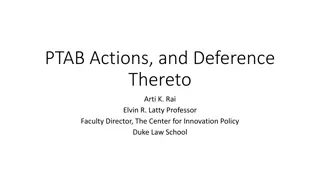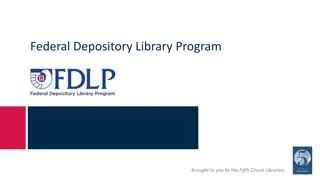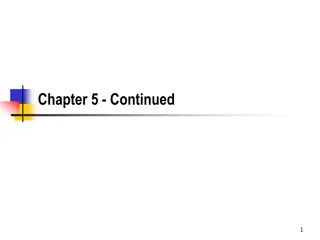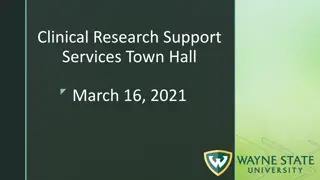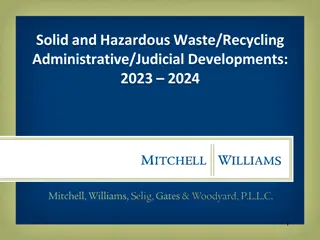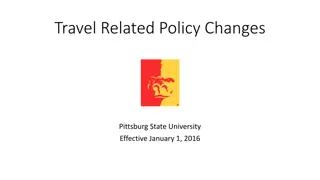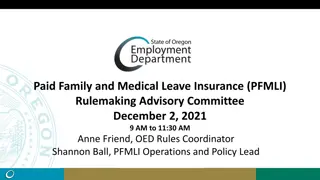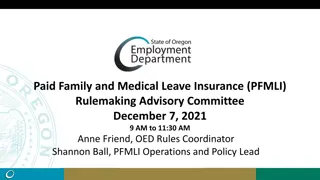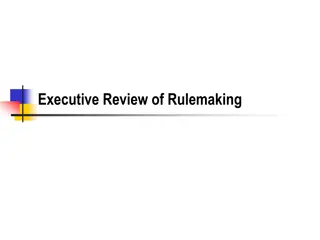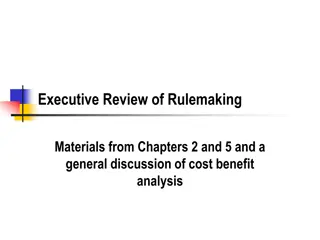Proposed Rulemaking on Biospecimen Research: Federal Policy Update
The proposed rulemaking aims to enhance the protection of human subjects in research involving biospecimens. Key changes include expanding the definition of human subjects, requiring informed consent for biospecimen research, allowing broad consent for secondary research, and creating exemptions to ease secondary research with biospecimens. The exclusion for non-identified biospecimen research applies to low-risk activities aimed at known individuals, triggering compliance requirements for many ongoing studies. Noteworthy, identifiable private information remains unchanged in the definition of human subjects.
Download Presentation

Please find below an Image/Link to download the presentation.
The content on the website is provided AS IS for your information and personal use only. It may not be sold, licensed, or shared on other websites without obtaining consent from the author. Download presentation by click this link. If you encounter any issues during the download, it is possible that the publisher has removed the file from their server.
E N D
Presentation Transcript
Research with Biospecimens Notice of Proposed Rulemaking on Federal Policy for the Protection of Human Subjects September 2015
Goals Better protect human subjects involved in research Simplify the current oversight system and reduce inappropriate administrative burdens 2
Major Changes Proposed 1. Expand the definition of human subject to cover non-identified biospecimens 2. Almost always require informed consent for biospecimen research stringent waiver criteria 3. Allow broad consent for secondary research 4. Create 2 new exemptions to facilitate secondary research with biospecimens 3
Major Change 1: Definition of Human Subject Expand to cover all biospecimens -- regardless of identifiability BUT One category of secondary research involving non-identified biospecimens excluded 4
Non-Identified Biospecimen Research Exclusion Applies to the secondary research use of non- identified biospecimens designed only to generate information about an individual that is already known Rationale: low-risk research that does not meaningfully diminish subject autonomy Activities such as the development & validation of certain tests and assays would be excluded ( 101(b)(3)) 5
What Does this Mean? Many secondary research studies with non- identified biospecimens that are currently being conducted as research not involving human subjects would need to comply with the regulations 6
Definition of Human Subject Meaning of identifiable private information is unchanged 7
Coverage of Biospecimens and Information under the Current Common Rule (CR) and the CR NPRM Identifiable biospecimens and identifiable information (including information derived from biospecimens) Non-identified biospecimens and non- identified information (including information derived from biospecimens) Current CR Activities with biospecimens that fall under the biospecimen research exclusion (101(b)(3)(i)) Biospecimen All biospecimens regardless of identifiability (except those included in the biospecimen research exclusion) CR NPRM Proposal Non-identified private information using the current CR s standard of identifiability (including non-identified information derived from biospecimens) Identifiable private information using the current CR s standard of identifiability (including information derived from biospecimens) Information Private Key Covered by the Rule Not Covered by the Rule 8
Major Change 2: Almost Always Require Consent for Secondary Research with Biospecimens Broad Consent : what does it mean? Would allow storage or maintenance and unspecified secondary research use of biospecimens and identifiable private information NPRM proposes the creation of a Secretary's template 9
Waiver of Consent Requirements More Stringent for Biospecimens 1) Compelling scientific reasons for the use of biospecimens 2) Research could not be conducted with other biospecimens from which informed consent was/could be obtained IRBs would not be permitted to waive consent if individuals were asked to provide broad consent and declined Waiver intended to be rare! 10
Major Change 3: Allow Broad Consent for Secondary Research with Biospecimens Broad consent could be obtained for biospecimens acquired from Non-research activities (e.g., leftovers from clinical treatment), or Research activities other than the proposed study (e.g., leftover specimens from a different research study) 11
Major Change 4: Two Exemptions for the Secondary Use of Biospecimens or Identifiable Private Information if Broad Consent Obtained Storage or maintenance for secondary research use of biospecimens or identifiable private information that have been or will be acquired for other research studies or for non-research purposes Research involving the use of biospecimens or identifiable private information that have been stored or maintained for secondary research use, if broad consent was obtained. 12
Required Privacy Safeguards Three options: 1. Secretary of HHS would promulgate standards that would involve minimal cost and effort for individual investigator to implement 2. HIPAA Rules 3. Specified Federal rules for research conducted by the Federal government Limitations on use, release and disclosure 13
One-time Broad Consent and Privacy Protections: Two Exemptions Biospecimens or Identifiable Private information with Broad Consent Secondary Research Use Biospecimens & Identifiable Private Exemption 104(f)(2) No return of results Exemption 104(f)(1) Limited IRB Review Generally one time, institution-wide Consent process Privacy protections Information Labeled & Tracked 14
Primary Collection of Biospecimens Specific for the Research If investigators are collecting biospecimens as part of a research intervention or interaction, then the usual rules apply Requires IRB review and almost always requires informed consent status quo Includes collection for a research repository 15
Submit Comments! See OHRP Website: http://www.hhs.gov/ohrp 16
OHRP Contact Information Phone: 866-447-4777 Fax: 240-453-6909 E-mail: ohrp@hhs.gov Website: http://www.hhs.gov/ohrp 240-453-6900 17
